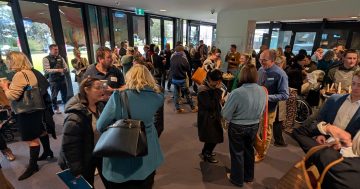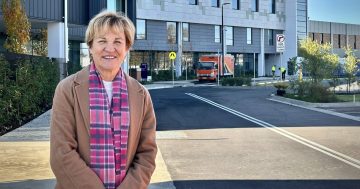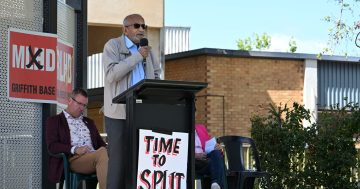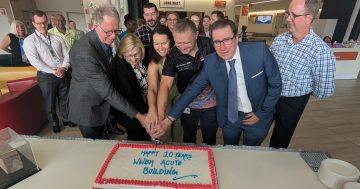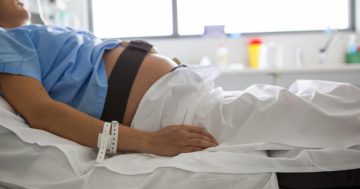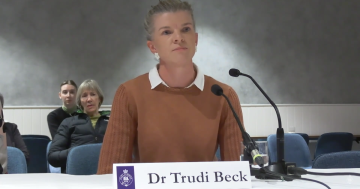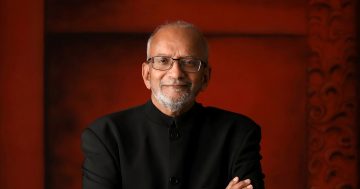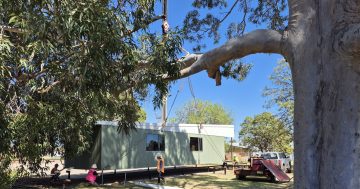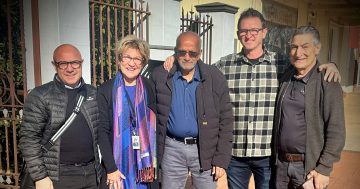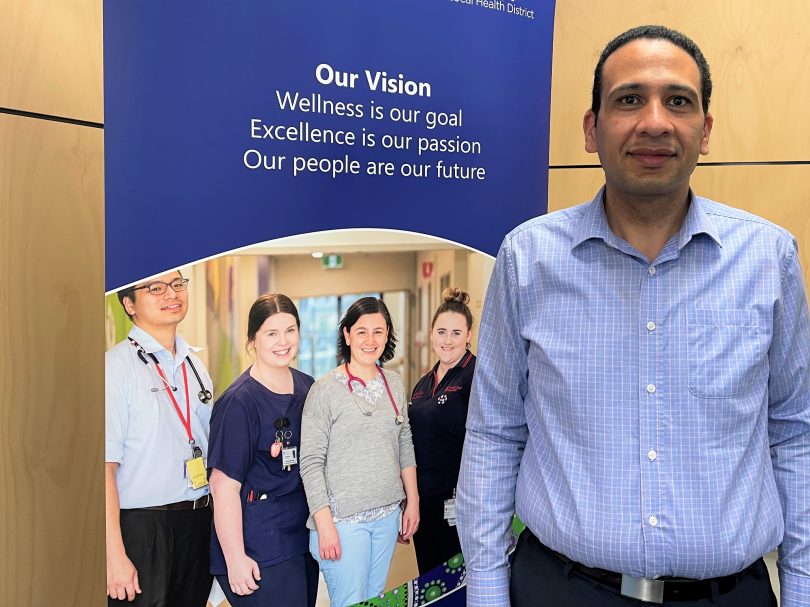
Wael Fahmy’s move to Australia initially seemed to stall his high-flying career, but now he’s grateful it enabled him to apply his skills in an environment where they really matter. Photo: Murrumbidgee Local Health District.
Wagga Wagga’s Wael Fahmy had a high-flying career in banking before moving from Egypt to Australia, but it came with one significant drawback.
He worked for Barclays in Cairo’s central business district, leading performance improvement and then strategy and business development. While he enjoyed living in the city that never sleeps, some of Cairo’s most violent demonstrations occurred at the foot of the Barclays building during the 2011 Egyptian revolution.
Wael’s employer issued regular safety tips on how to walk through demonstrations and reach head office without being injured or arrested – an unthinkable situation for most of us in regional NSW.
Recently appointed as cancer services and innovation manager at Murrumbidgee Local Health District, Wael says the stress levels are “quite different”.
But the path to snaring his new job was not without its challenges.
When the Fahmy family moved to Australia, visa requirements meant the family had to live in a regional area for two years – and regional Australia is short on multinational banks.
After six months, Wael’s wife, Reiham, secured a job in Wagga Wagga while she studied to have her medical qualifications recognised.
However, Wael, equipped with an accounting degree and high-flying multinational experience, spent an entire year fighting the exasperating predicament of being unemployed and overqualified.
“I still have a bag full of rejection letters,” says Wael, who acknowledges it was a tough time that affected him deeply.
“You ask yourself, ‘What am I doing wrong? What is missing from my qualifications? Should I start studying any degrees?’”
Wael, who had received accolades for achieving the highest cost-savings by improving productivity and efficiency across the Barclays group worldwide, eventually had his talent for driving efficiency recognised by NSW Health.
BreastScreen NSW needed a data manager and after being blown away by what Wael could do with an Excel spreadsheet, the organisation snapped up the chance to have him work across both Murrumbidgee Local Health District and Southern NSW Local Health District.
“I am passionate about improving processes with very simple changes that make a huge difference,” says Wael, who brought new rigour to planning. “To do that, you need to understand how the machine works, which is actually a kind of science – process engineering.
“I did that a lot in Barclays and when I moved to BreastScreen, I also did that most of the time.”
Wael says he values working in a safe environment with rich and frequent brainstorming, where colleagues are free to say, “That’s not going to work – this is not good enough – we are going to have to do something different”.
With a whole-team approach, new efficiencies have been achieved across mobile clinics, which deliver BreastScreen NSW services to 29 communities across the 170,000 square kilometres covered by both local health districts.
While the service never knew in advance exactly how many women would attend mobile clinic visits, Wael harnessed past data and timely reporting to inform planning, build efficiencies and prevent waste.
That flowed through to many other processes, such as the timing of invitations to screen being sent out, and in turn, the timing and scale of follow-up assessment clinics.
“Once you plan, you start being creative and innovative because you are not being reactive and increasing cost to improve the service,” he says.
After eight years at BreastScreen NSW, Wael was recently appointed as cancer services and innovation manager, where his role includes managing oncology provider contracts and a team of cancer care coordinators, including an oncology nurse and a social worker.
In addition to the role’s focus on cancer treatment, he is excited by the potential for innovation in terms of wellbeing and prevention.
“I’m really passionate about this work,” says Wael. “BreastScreen was about early detection of cancers, and Cancer Services is then about supporting our community during cancer treatments, and working to ensure they are accessible and equitable.”
While the move to Australia initially seemed to have thrown ice on Wael’s high-flying career, he is now grateful it enabled him to apply his skills in an environment where they really matter.
“Numbers here are people, while numbers in banking are money so I’d rather care for the numbers that are people,” he says.
“Performance in health is way more important than performance in banking. And efficiency and innovation in health is way more important than banking because, again, you will end up with better value care.”
Original Article published by Kim Treasure on About Regional.







